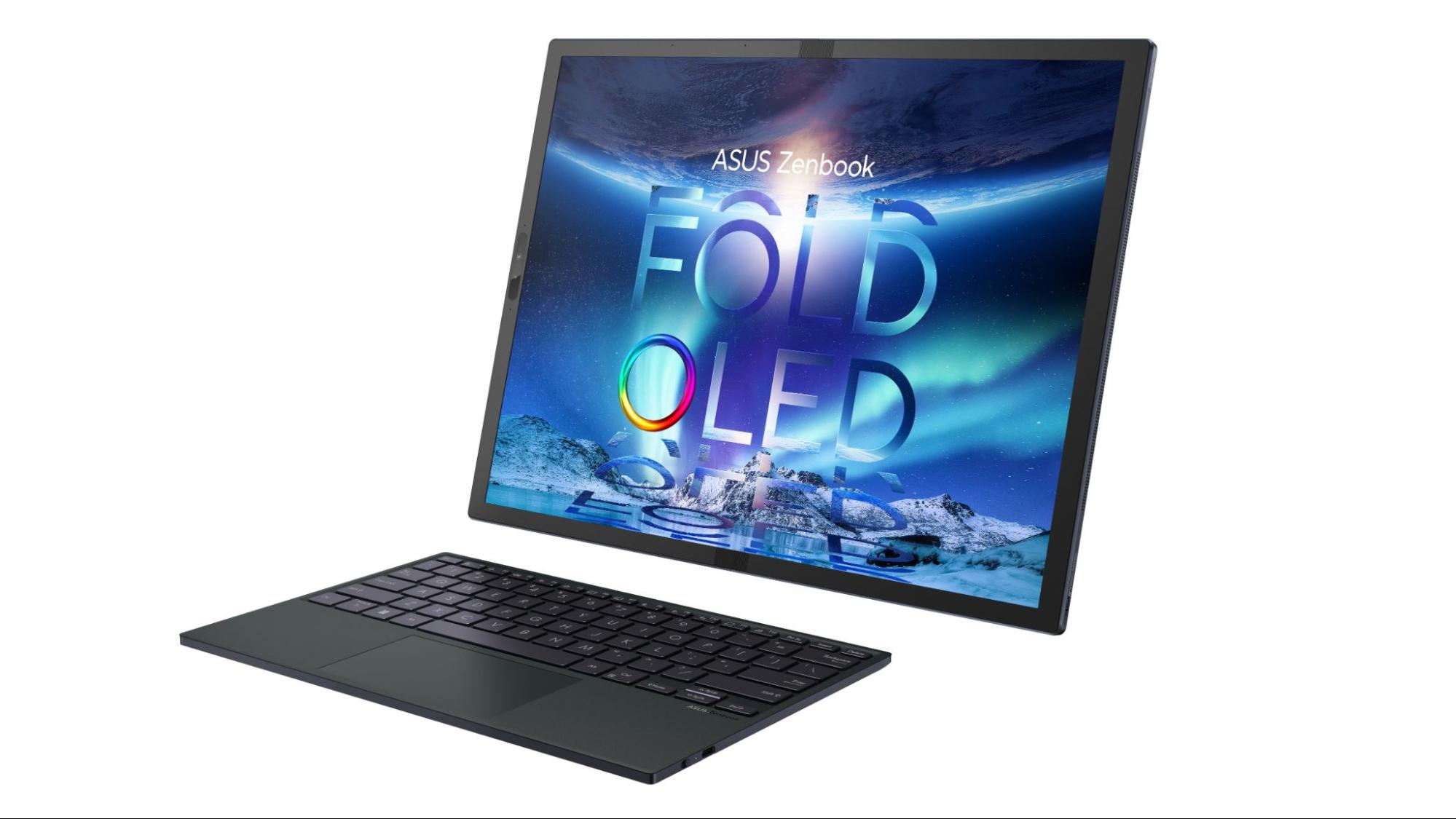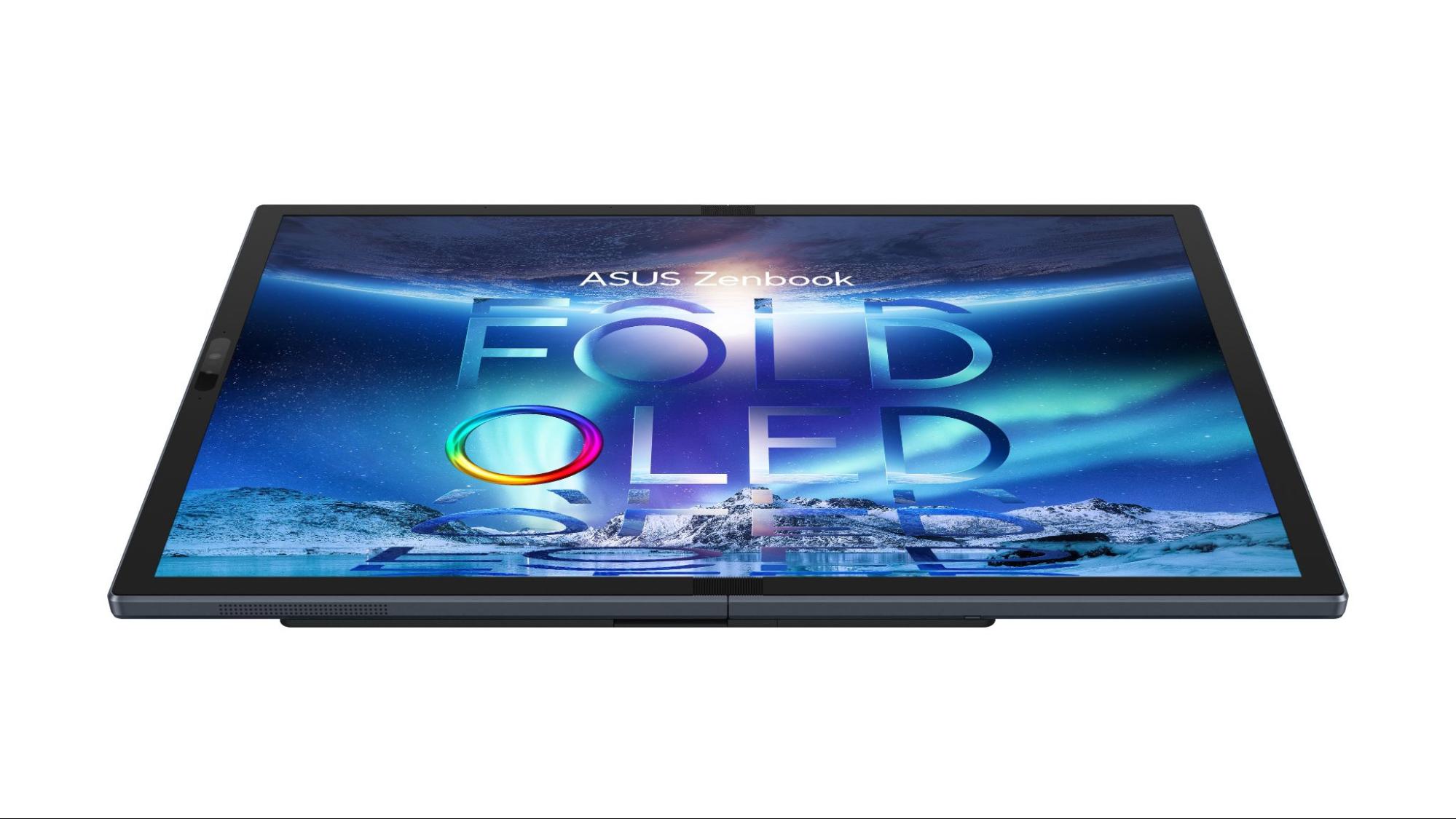Asus' Zenbook 17 Fold OLED Is Like a Giant Folding-Screen Phone
A big foldable display meets Alder Lake U Series
If you've been intrigued by the folding-screen phones from the likes of Samsung and others, but want something bigger, more powerful and running Windows 11, let me introduce you to Asus' Zenbook 17 Fold OLED.
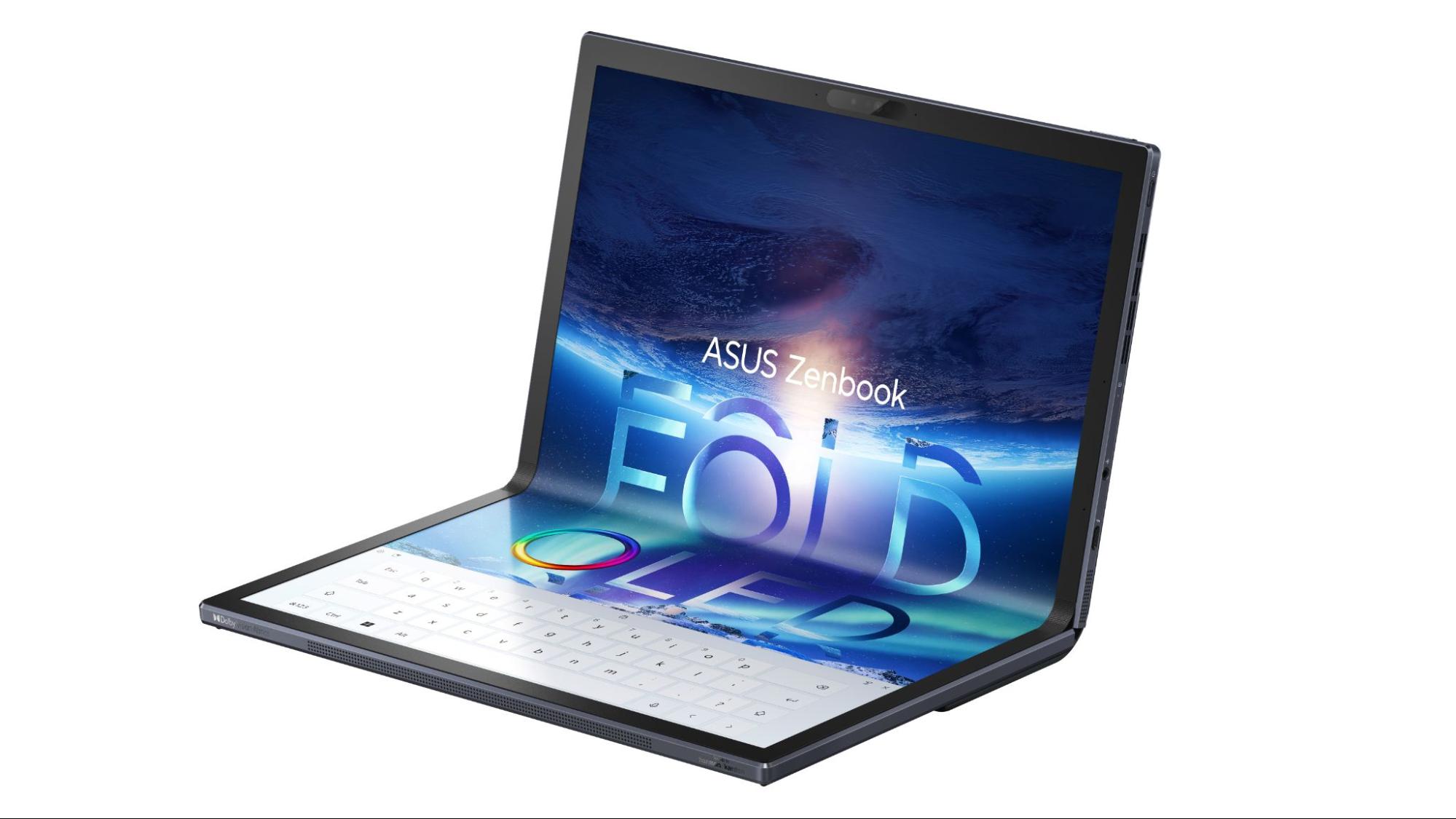
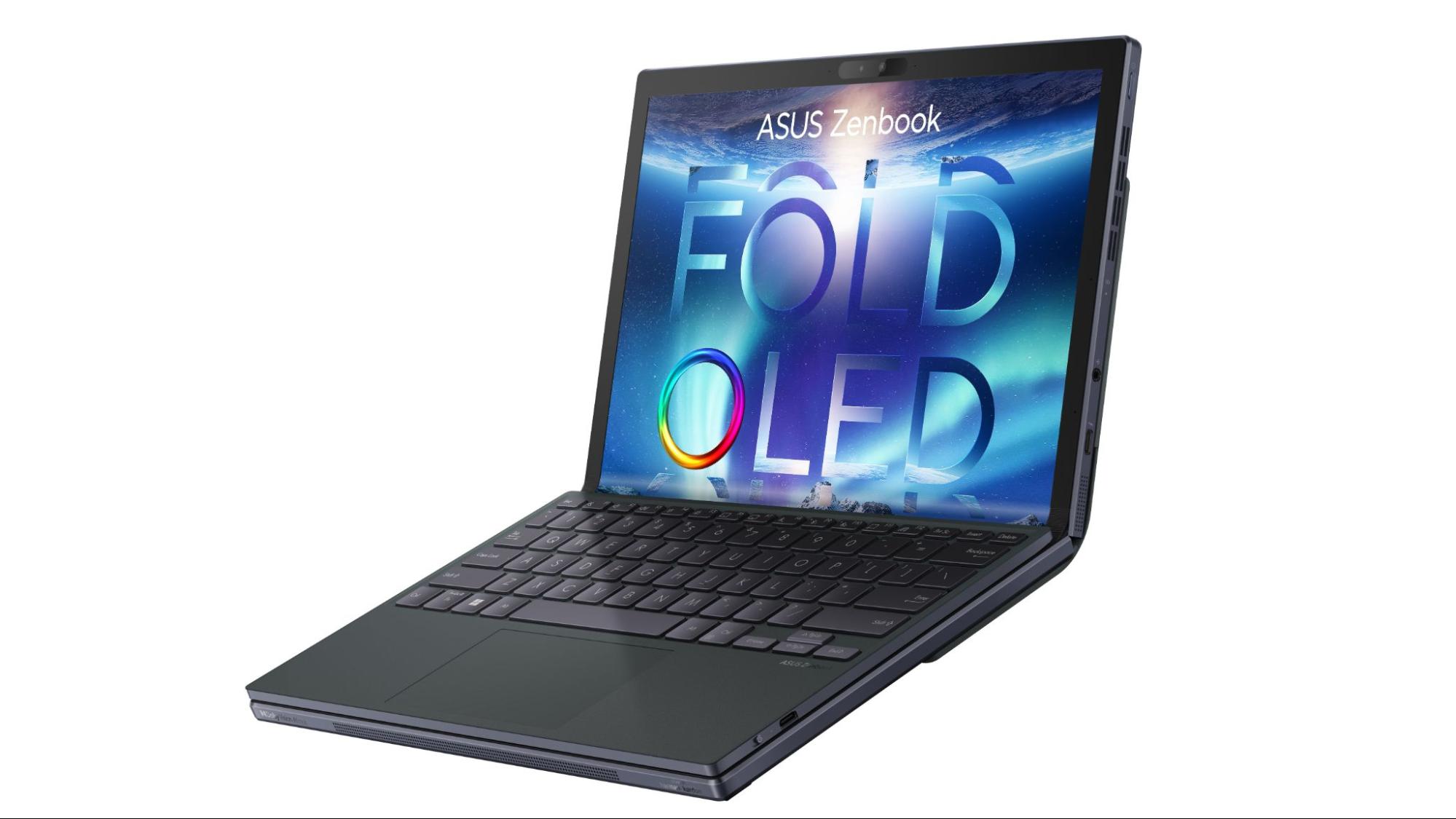
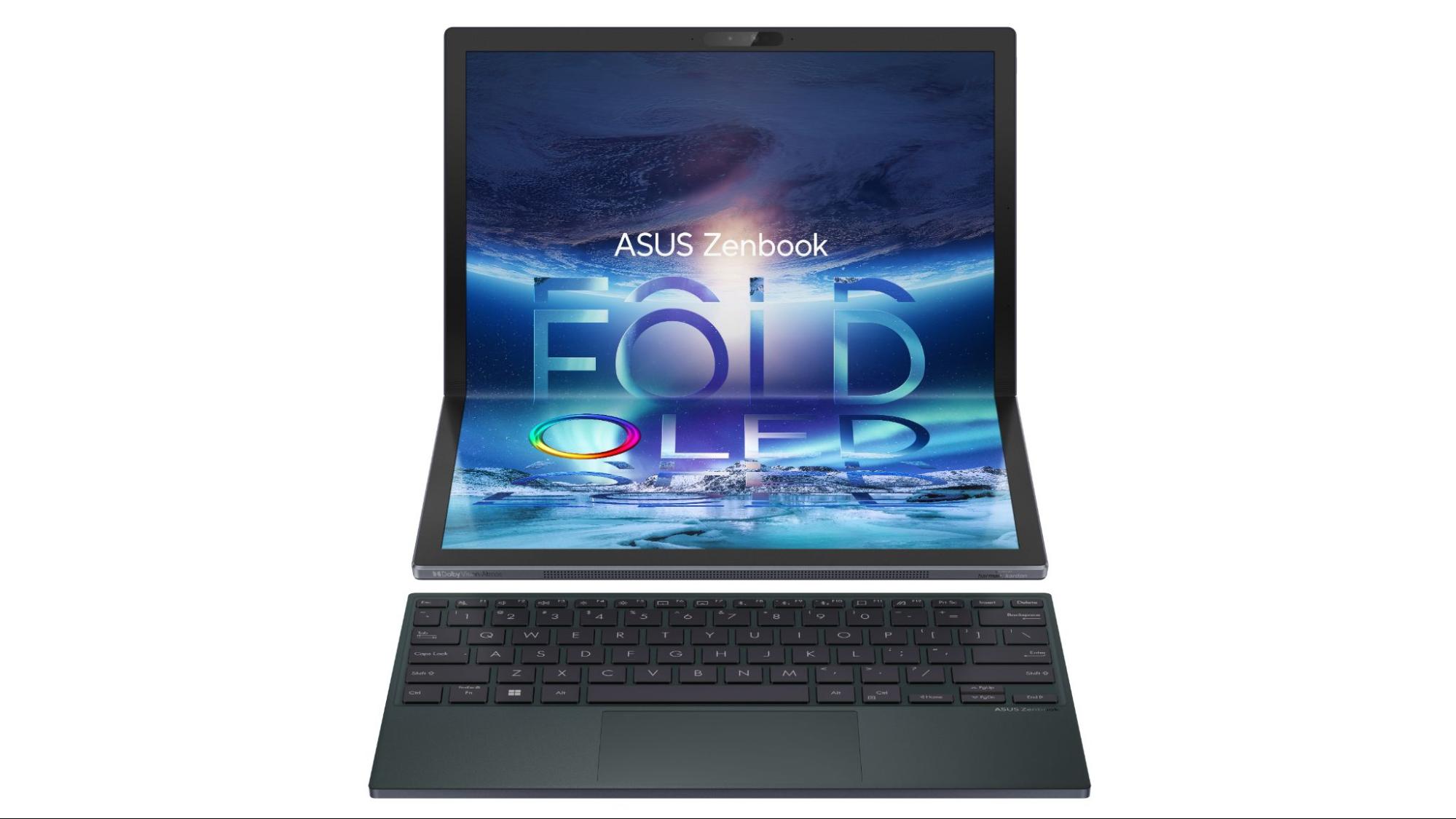
It's essentially a 17.3-inch 4:3 foldable OLED touchscreen, powered by a 12th Gen Intel U-series i7 processor. When folded like a laptop, the top half of the display becomes a 12.5-inch 1920 x 1280 screen. You can use the bottom half as a touch keyboard, or Asus will offer an ErgoSense Bluetooth keyboard/touchpad designed to function either sitting on top of the bottom half of the Zenbook's display , or on a table with the full 17.3-inch display standing up in front of it.
Asus touts the display of the Zenbook 17 Fold as Pantone validated, Dolby Vision HDR enabled and delivering 100% of the DCI-P3 gamut. There are also four Harman Kardon-certified speakers for Dolby Atmos support. And Asus packs in both an HD IR camera with a color sensor for automatic brightness and color temperature adjustments, as well as a 5 MP webcam.
Along with the i7 U-Series CPU, the Zenbook 17 Fold OLED will offer 16GB of RAM and a 1TB PCIe 4.0 SSD. You get two USB-C Thunderbolt 4 ports and a 75 Wh battery with fast charging. We'll be curious to see how that battery holds up powering that huge OLED display, but we'll have to wait a bit to find out. Asus says the Zenbook 17 Fold OLED will arrive sometime in the "mid-year" of 2022.
This device is reminiscent of the dual-screen Twin River prototype Intel showed at Computex in 2019, and Asus says its Zenbook 17 Fold OLED was also designed in conjunction with the chipmaker. In 2018, Asus had shown off a dual-screen prototype dubbed Project Precog, which also used AI for easier navigation.
While a device like this clearly opens up new possibilities for on-the-go productivity and entertainment in a Windows-based laptop, it also brings with it the same screen worries (cracking, creases, etc.) of folding-screen phones–just on a much larger scale. And despite being small when folded in half, this isn't exactly a light device. Asus says the Zenbook 17 Fold OLED will weigh between 3.53 and 3.75 pounds – and that's without the ErgoSense Bluetooth keyboard and touchpad.
There's no denying, though, that this is an intriguing design. Lenovo's ThinkPad X1 Fold tried something similar in 2020, although that device was smaller and less powerful, while suffering software issues related in part to Windows 10. It will be interesting to see how far Asus, with the help of Intel and Microsoft (with Windows 11) has taken the folding screen laptop concept in the last couple years. Traditional clamshells and rigid screen convertibles will likely remain dominant for years to come. But perhaps there will be a spot on our best ultrabooks list for a folding-screen ultraportable later in 2022.
Get Tom's Hardware's best news and in-depth reviews, straight to your inbox.
After a rough start with the Mattel Aquarius as a child, Matt built his first PC in the late 1990s and ventured into mild PC modding in the early 2000s. He’s spent the last 15 years covering emerging technology for Smithsonian, Popular Science, and Consumer Reports, while testing components and PCs for Computer Shopper, PCMag and Digital Trends.
-
AnimeMania This device will be much more likely to succeed if the device can also double as a foldable second monitor. A high quality monitor has utility that is typically far longer than the computer that it is attached to. I can imagine carrying a main powerful work/gaming laptop and using this as a second laptop/second monitor. If someone is bothering you while you are trying to get your work done, you can detach your insanely smart monitor to distract them with some video watching or web browsing. Being a wonderful and large, very portable and useful secondary monitor might actually help justify the cost of this insanely expensive and cool computer.Reply -
AnimeMania I think better after sleeping on a problem, this is simply the best AIO computer you could buy (If you are that type of person) especially if there is a way to make the computer stand upright. Just think how easy it would be to fold it away and how protected it is and how little space it would take up when you are not using it. I have always thought that AIO computers should be able to double as just a monitor when they outlive their computing usefulness.Reply
